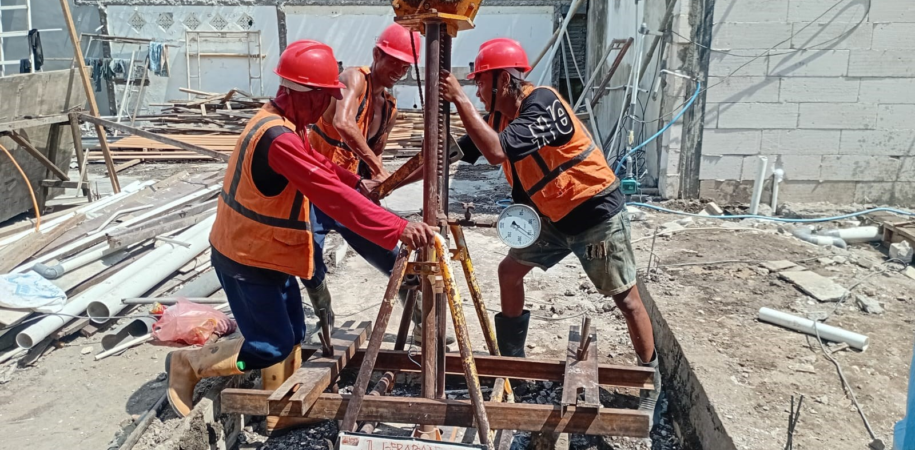When planning a construction project in Bali, one of the most critical early steps is conducting a professional soil investigation. Understanding the ground conditions of your project site ensures that your building stands on a safe, stable, and cost-effective foundation. For a recent development on Beraban Street, South Kerobokan in Badung Regency, our team at Indo Soil was once again trusted to provide this essential service.
This project was carried out for Mr. Cesare, a returning client whom we’ve had the pleasure of working with before. This marks the second soil test project we’ve conducted for him, demonstrating the trust and reliability we strive to build with all our clients. As with the previous collaboration, we were committed to delivering accurate, timely, and professional geotechnical data to support his development plans in Bali.
On November 7, 2024, we performed a comprehensive geotechnical investigation at the Beraban Street site. Our team carried out Cone Penetration Testing (CPT/Sondir) and Standard Penetration Testing (SPT), alongside borehole sampling and groundwater monitoring. These tests are essential to determine the load-bearing capacity of the soil, the presence of soft layers, water levels, and the appropriate depth for foundation structures.
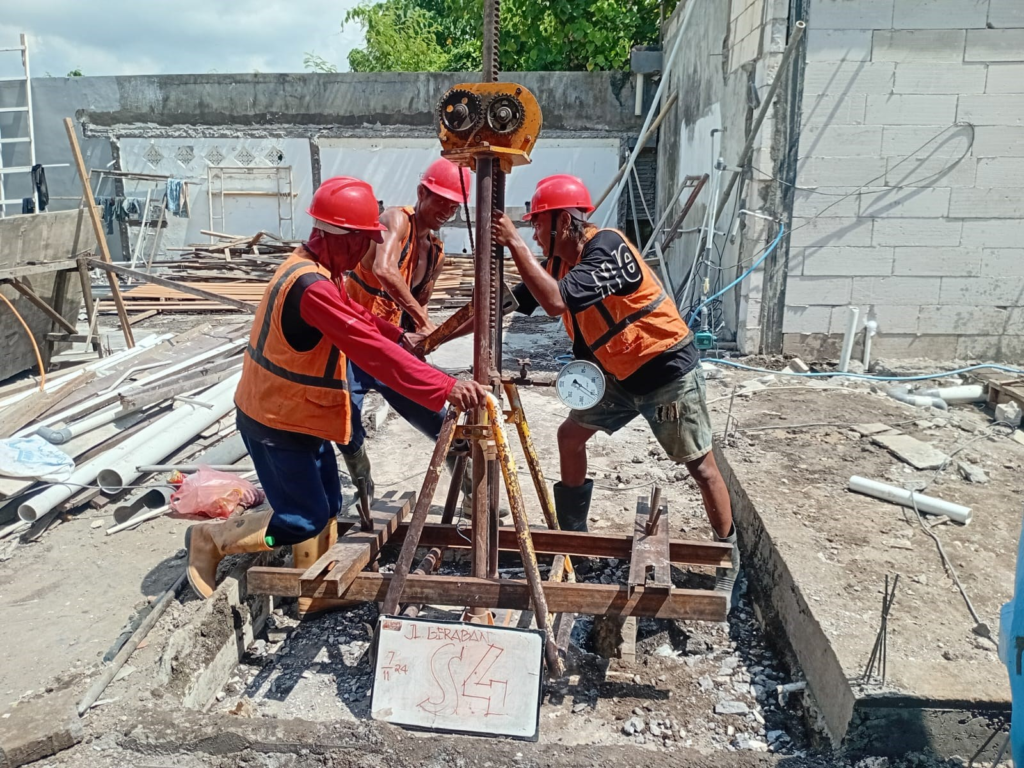
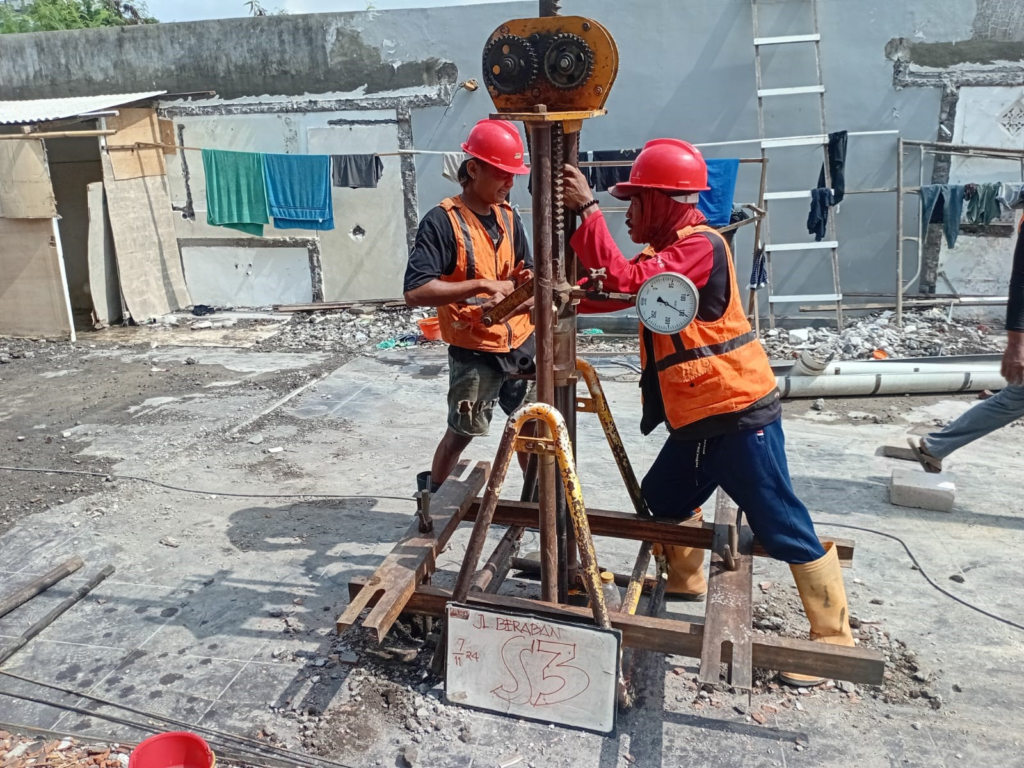
Soil Test Results
The test results revealed a hard soil layer at depths between 4.8 and 5.2 meters, making the site well-suited for deep foundations, particularly bore piles. Based on our findings, a bore pile foundation is the most appropriate solution for supporting the structural loads of the planned building. This type of foundation is ideal for projects involving multi-story villas or commercial properties, which are common in the Kerobokan area.
Here is a summary of the bearing capacities for 30 cm diameter bore piles based on our CPT data:
S1 (Depth: 4.80m): 42.63 tons
S2 (Depth: 5.20m): 41.77 tons
S3 (Depth: 5.00m): 41.77 tons
S4 (Depth: 4.80m): 41.11 tons
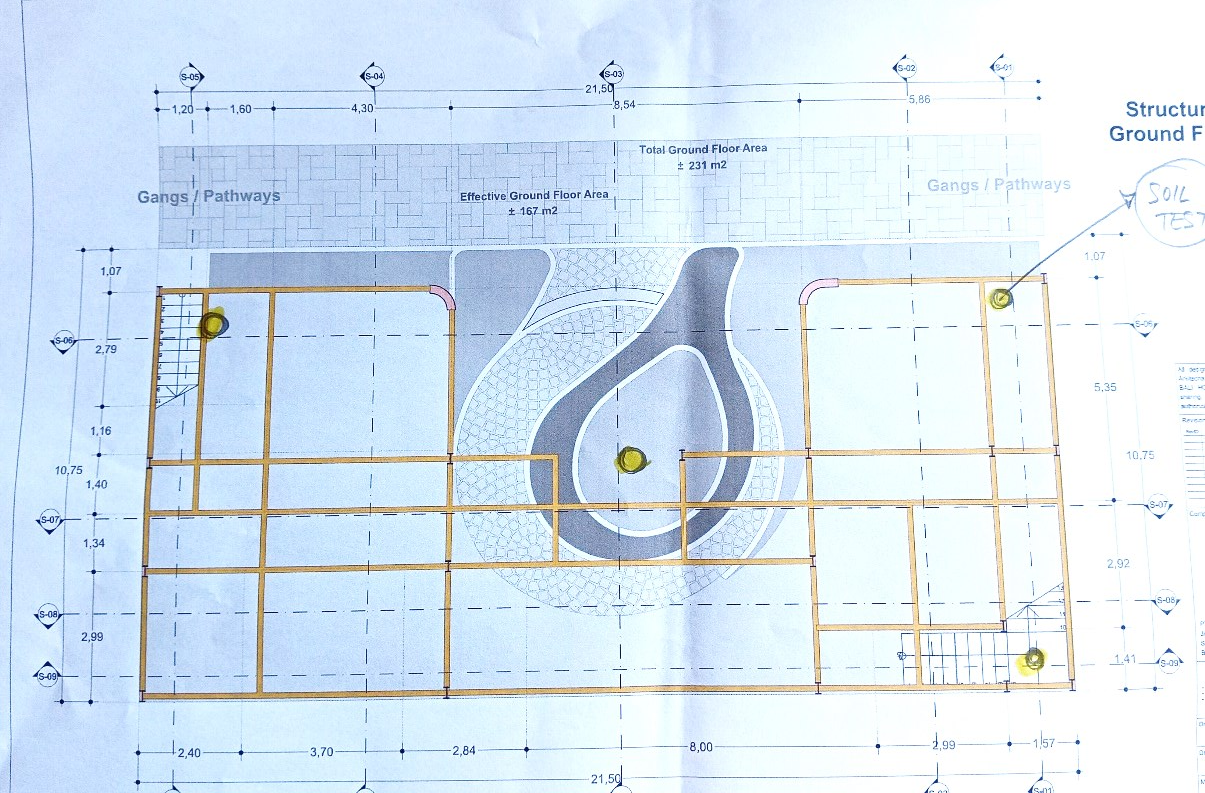
These figures provide clear, reliable data for structural engineers to use when designing foundations. It’s important to highlight that if any cut and fill work is performed before construction begins, the effective depth to reach hard soil must be adjusted accordingly. Our report takes this into account and provides guidance on how to adapt the data during the construction phase.
In addition to load capacity, we also evaluated groundwater levels, friction resistance, and the consistency of soil layers. These data points help in identifying potential construction risks and inform the selection of waterproofing methods or site preparation strategies.
At Indo Soil, the leading Soil Test Provider in Bali for over 10 years of experience, we pride ourselves on being a trusted geotechnical partner for developers across Bali. Our repeat collaboration with Mr. Cesare reflects our commitment to quality, transparency, and long-term relationships. Each report we produce is carefully prepared by certified engineers and adheres to the standards set by the Indonesian Association of Soil Engineers (HATTI).
For those building in Bali—whether you’re a private investor, villa developer, or construction company—conducting a professional soil test is a non-negotiable step toward building responsibly. Skipping this stage or relying on assumptions can lead to foundation failure, structural cracking, or expensive redesigns down the line. With reliable data from Soil Test Bali, you can proceed with confidence.
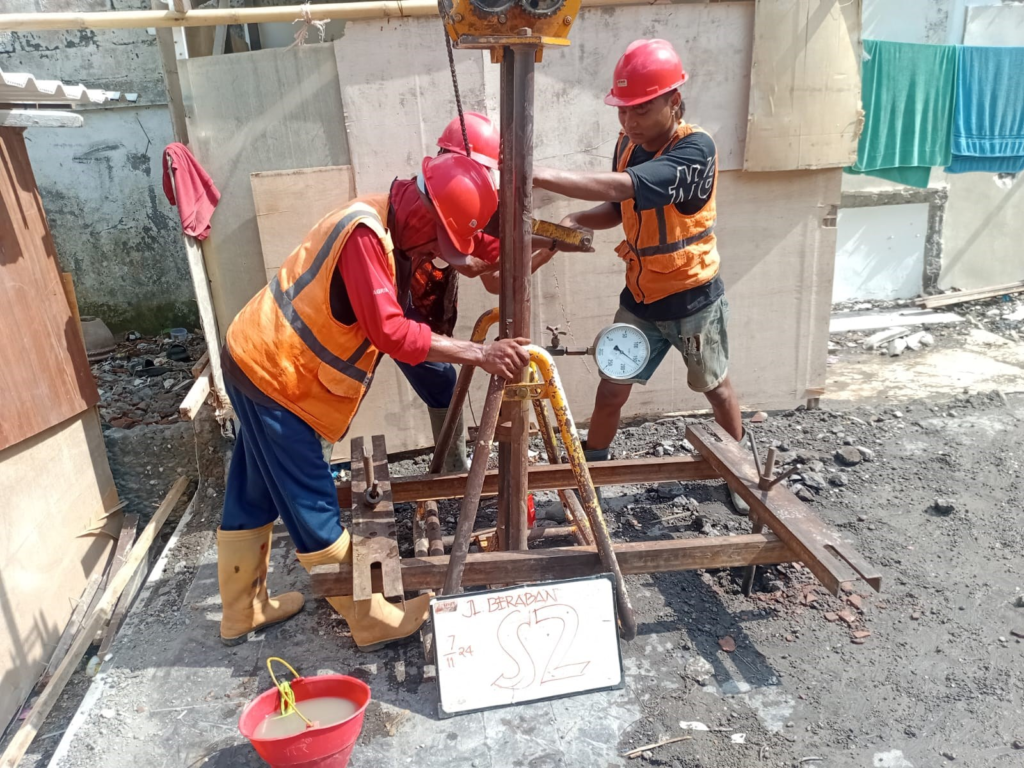
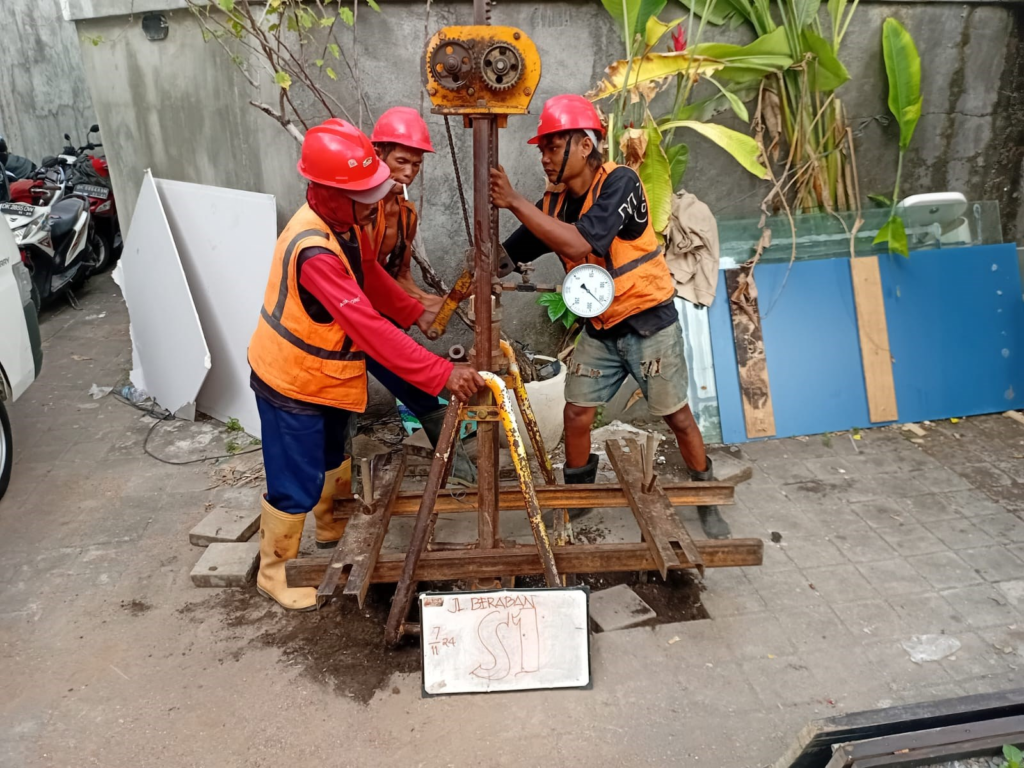
Ready to Build in Bali?
If you’re developing property in Bali, Lombok or Sumbawa and want the peace of mind that comes with accurate, science-backed data, reach out to Soil Test Bali. We’re here to help you build from the ground up—safely and successfully.
📧 Email: admin@soiltestbali.com
🌐 Website: www.soiltestbali.com
📍 Areas Served: At Soil Test Bali, we proudly offer soil testing and geotechnical services across the islands of Bali, Nusa Tenggara Barat (NTB), and Nusa Tenggara Timur (NTT).
In Bali, we serve all major regions including Denpasar, Badung (such as Canggu, Seminyak, Kuta, Kerobokan, Umalas, Jimbaran, and Nusa Dua), Gianyar (including Ubud, Tegallalang, and Blahbatuh), Tabanan (including Beraban, Kediri, and Selemadeg), Buleleng (such as Lovina and Singaraja), Karangasem (including Amed and Candidasa), Klungkung (Nusa Penida and Nusa Lembongan), as well as Bangli and Jembrana (Negara and Medewi).
In NTB, our service areas include Mataram, Lombok Barat (Senggigi and Sekotong), Lombok Tengah (Kuta Mandalika and Praya), Lombok Timur (Selong and Sembalun), Lombok Utara (Tanjung and Senaru), as well as various locations in Sumbawa such as Sumbawa Besar, Taliwang, Bima, and Dompu.
For clients in NTT, we provide soil testing services in key regions including Kupang, Labuan Bajo (West Manggarai), Ende, Maumere (Sikka), Larantuka (East Flores), Waingapu (Sumba Timur), Waikabubak (Sumba Barat), Ruteng (Manggarai), Atambua (Belu), Soe (South Central Timor), and Kefamenanu (TTU).
No matter where your project is located in Bali, NTB, or NTT, our experienced team is ready to deliver accurate, professional, and reliable soil investigation solutions to support your construction journey









